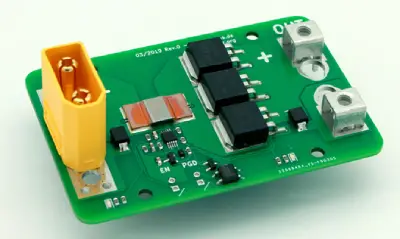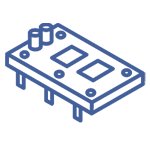Categories
- Hot Swap Controllers(1)
- 1
Description of Hot Swap Controllers
PMIC - Hot Swap Controllers are semiconductors that offer the protection and control needed to let you insert or remove other components from a circuit while it's still powered up. They're handy for computer networking and general power systems. These controllers come with different features like output current, the number of channels they control, and special functions like auto retry, fault timeout, and various protections.
A hot-swap controller is a gadget or IC (integrated circuit) that takes care of plugging in and unplugging circuit boards or components while the system is running, without causing any hiccups or damage. Hot swapping is when you swap out or add parts to a computer system without having to shut it down or restart. For instance, it lets you remove a USB device or switch SIM cards in a smartphone without turning the device off. This feature is handy for changing system setups or fixing issues on the fly, all without interrupting the system's operation, saving you time and hassle.

Functions of Hot-Swap Controller
Control Inrush Current
When a hot-swap board is plugged into the system, the controller gradually charges the board’s capacitor to prevent a sudden surge of current and other potential issues caused by the insertion.
Isolate Faults
The hot-swap controller isolates any faults on the inserted board from the rest of the system. It keeps an eye on faults like overcurrent, overvoltage, and undervoltage, and takes protective actions such as disconnecting the faulty component or triggering an alert.
Power Management
The hot-swap controller watches over power in every unit and decides when a backup power unit should kick in. If power drops below a set level, it indicates a fault and switches the system to the backup power without interrupting the load. It also manages the sequence in which power is supplied to different components or sections of the board.
Electrostatic Discharge (ESD) Protection
The hot-swap controller safeguards sensitive electronic components from ESD damage during insertion or removal. ESD protection circuits are built in to safely disperse electrostatic charges.
Hot-swap controllers let you replace or upgrade components like hard drives, power supplies, and network cards without having to shut down the server. They're essential for keeping network equipment running smoothly, allowing for maintenance and upgrades without any downtime. These controllers are also used in critical control systems where continuous operation is vital, enabling the swap of faulty modules without interrupting the system.
Status Monitoring: The hot-swap controller features status indicators (like LEDs) or interfaces with a system controller to provide information about the state of the hot-swapped component, including power-good signals and fault status.













